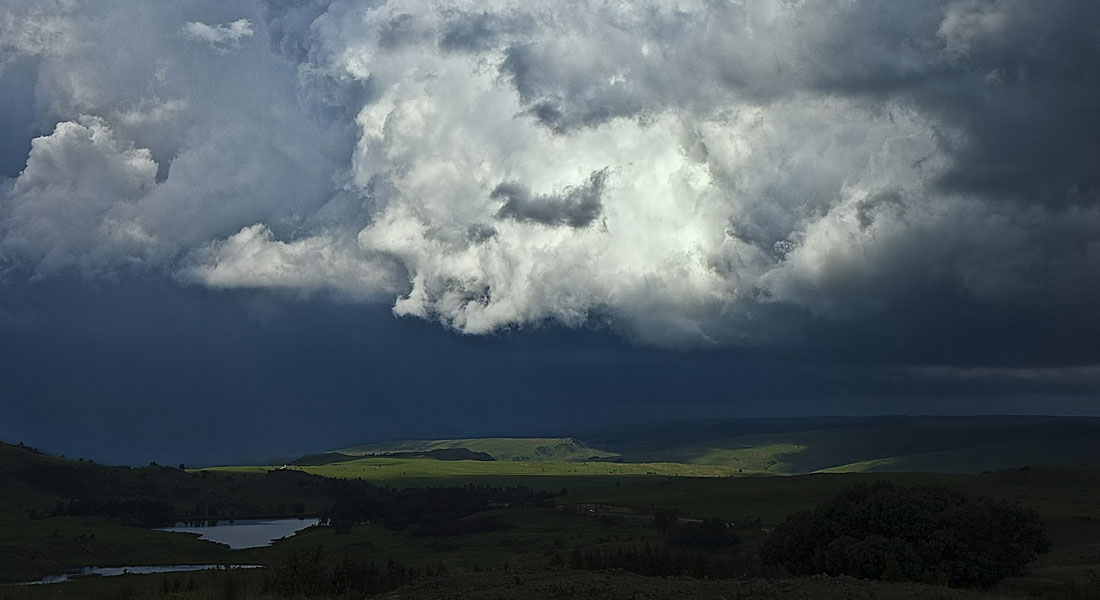Grant for developing long term weather predictions in Denmark
Professor Jens Hesselbjerg and associate professor Christine Hvidberg from the Niels Bohr Institute, University of Copenhagen have, in collaboration with senior researcher Camilla Snowman Andresen from the Geological Survey of Denmark and Greenland (GEUS), received a grant from the Independent Research Fund Denmark to provide us with a much longer perspective on the general weather situation in Denmark. They aim to apply data from a series of different sources and combining them with historical knowledge on the climate. The objective is to obtain an overview of the weather situation developing in the North Atlantic region and Denmark, linked to the fact that we live in an increasingly warm climate.

Higher level of detail in existing climate models
Professor Jens Hesselbjerg explains: “In this project, we aim to improve the climate models already in use, in order to improve their capability to predict extreme weather conditions like summer droughts or heavy precipitation, going on for weeks in Denmark”. He stresses that we are not talking about weather forecasts in the traditional sense, providing the backdrop for decisions on whether to wear a summer hat for shade or going for a hike in the woods tomorrow, but instead predictions of the general type of weather we will be experiencing in the next, fairly long period of time. One of the hypothesis is that variations in the outflow of meltwater from the inland ice sheet can be a determining factor in creating long lasting high pressure areas in the North Atlantic region, blocking the western wind in Denmark. The timespan for the predictions can, if all goes according to the prospects of the researchers, be up to as much as ten years.
2000 years of meltwater in Greenland may hold the answer to how the weather develops
Knowledge on the meltwater from the inland ice sheet in Greenland, melting sea ice and a small contribution from meltwater from Iceland will, in combination with geological climate reconstructions from lake- and sea bottom sediments and the ice sheet, create an overview of the last 2000 years’ climate change in Greenland, Iceland and Scandinavia. Simultaneously, the researchers will be reconstructing the melt from Greenland during the same time span, by combining climate series from marine geological data and ice cores from the ice sheet with computer models simulating the development of the ice sheet. The time span of 2000 years should be sufficient for the combination of measurements and methods to be robust in creating reliable predictions of the general trend in the weather in our part of the world. In other words, we will be having more reliable knowledge on whether we’ll be experiencing more droughts in the coming summers or perhaps moist, rainy summers instead.
Senior researcher Camilla Snowman Andresen from GEUS contributes to the project with climate series from marine sediment cores from the Greenlandic fjords, yielding knowledge on variations in the outflow of meltwater and icebergs back in time. Paleoclimatic data (Reconstructions of historical climate) from ice cores and marine sediment cores from Greenland will be combined with paleoclimatic data from Northern Europe, in order to reconstruct atmospheric circulation patterns in the Northern Atlantic as well as the occurrence of extreme weather phenomena.
Many areas of society will benefit from more detailed, local information on climate
It is fairly obvious that farming and forestry will benefit, through choice of crops, from knowing more about the behavior of the climate in the longer run. Planning coastal protection and effects on sewage capacity, protection of the Metro from flooding and keeping ground water reserves safe are other areas of society the new knowledge could impact. Preparation for heat waves in summer and entailing health risks, adapting hospital capacity will be possible for the safety and rescue sector. Last, but not least, conversion of our energy sources to wind mills and solar cell infrastructure can be improved through more precise information on the oscillations of the weather.
Topics
See also:
Contact
Jens Hesselbjerg Christensen, Professor
Email: hesselbjerg@nbi.ku.dk
Phone: +45 35 33 56 58
Christine Schøtt Hvidberg, Associate Professor
Email: ch@nbi.ku.dk
Phone: +45 35 32 05 63
